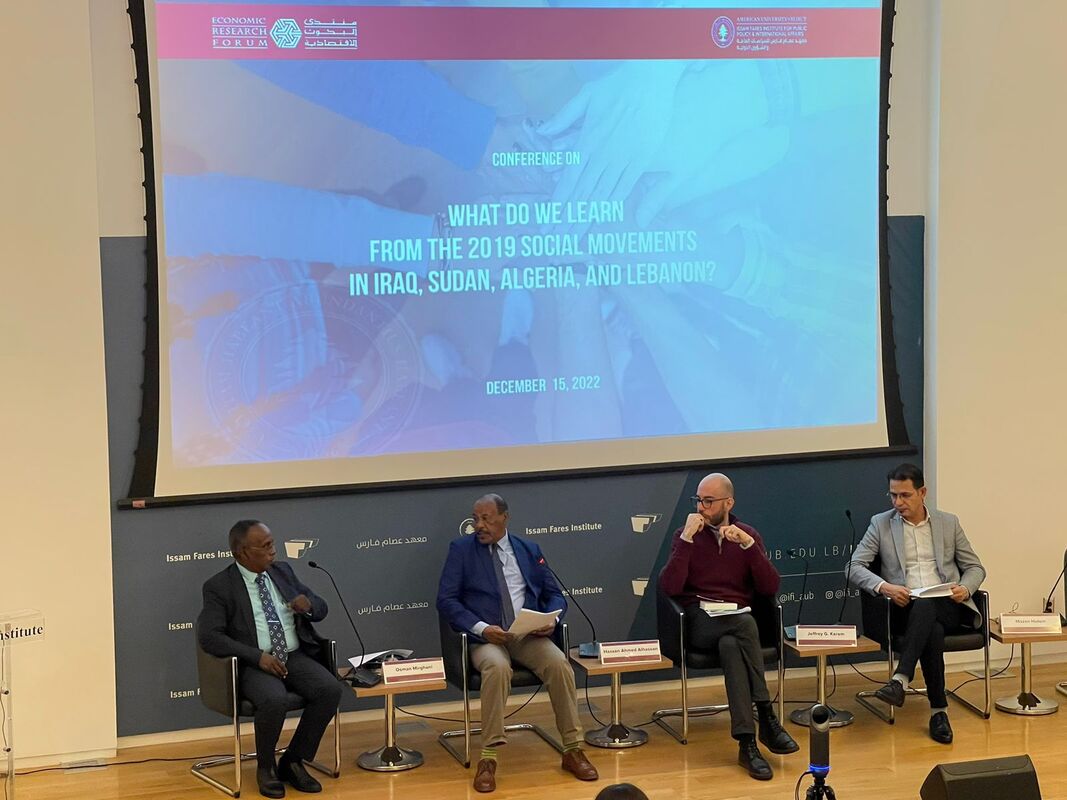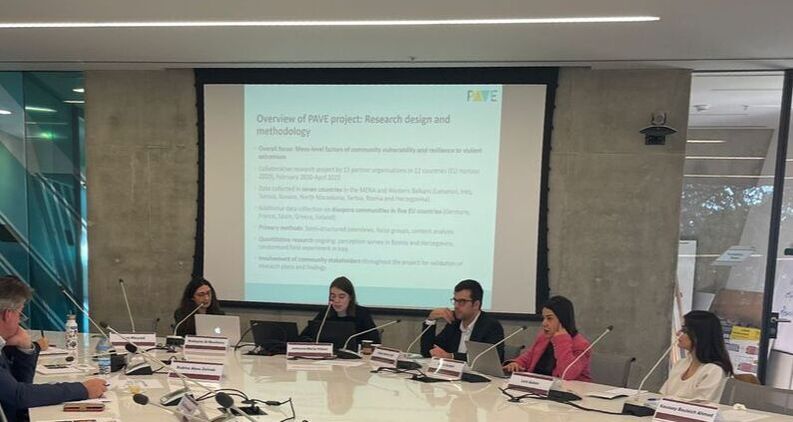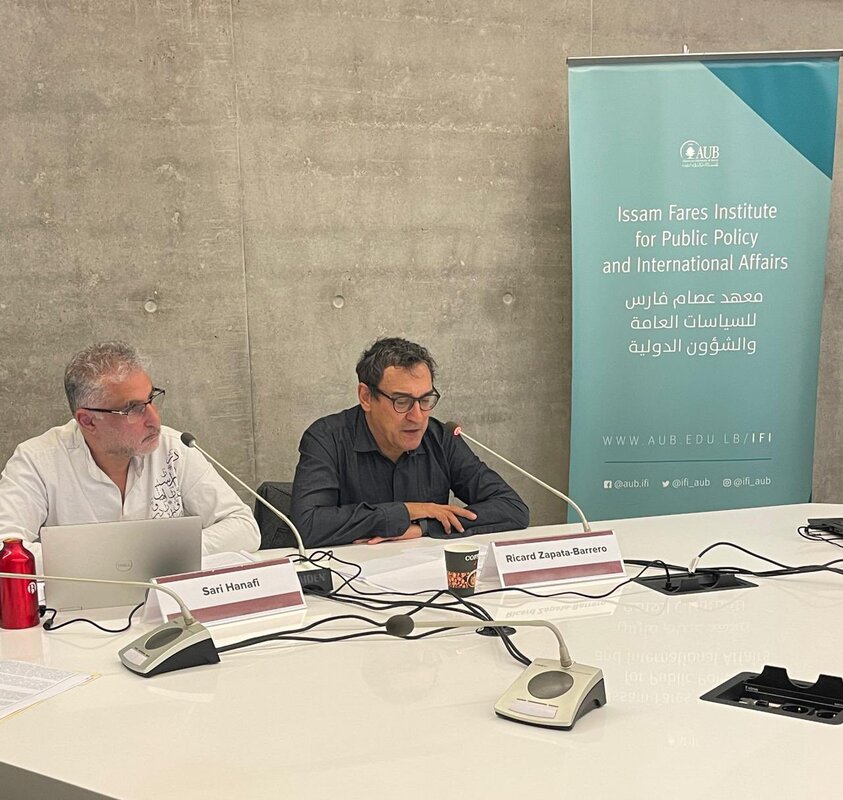|
IFI and the Economic Research Forum (ERF) organized a conference on December 15, titled “What Do We Learn from the 2019 Social Movements in Iraq, Sudan, Algeria, and Lebanon?” Its aim was to focus on the intellectual production stemming from the region's social movements as they happened, their legacy so far, and the lessons drawn to shape a more progressive social contract.
On the occasion of the International Day of Commemoration and Dignity of the Victims of the Crime of Genocide and of the Prevention of this Crime, the Issam Fares Institute for Public Policy and International Affairs (IFI) at the American University of Beirut, in collaboration with the Armenian General Benevolent Union (AGBU) Lebanon and Lepsius Haus Potsdam, held a hybrid conference titled “Memory and Justice: Remembrance in the Aftermath of Political Violence.” The conference took place on December 9, 2022, with panel discussions covering the importance of archives in the analysis and interpretation of history, as well as regional experiences in the modification of history and memory and its repercussions on justice.
Policy Roundtable: Preventing and Responding to Violent Extremism through Community Resilience12/9/2022
IFI in collaboration with La Fondation Maison des sciences de l’Homme- Paris (FMSH) and the Berghof Foundation, hosted a policy roundtable titled “Preventing and Responding to Violent Extremism through Community Resilience (PAVE)” on December 9, 2022. The roundtable aimed to gather representatives of the donor community working on Preventing and Countering Violent Extremism” (P/CVE) in Lebanon to share findings and discuss the evidence-based policy recommendations presented by the EU H2020 project PAVE. IFI in collaboration with the Asfari Institute for Civil Society & Citizenship at the American University of Beirut held a book discussion of "Contested Concepts in Migration Studies" with author Ricard Zapata-Barrero Professor at the Department of Political and Social Sciences, Universitat Pompeu Fabra, Barcelona. The discussion was held on December 7 and moderated by Sari Hanafi.
|
Archives
July 2024
|



